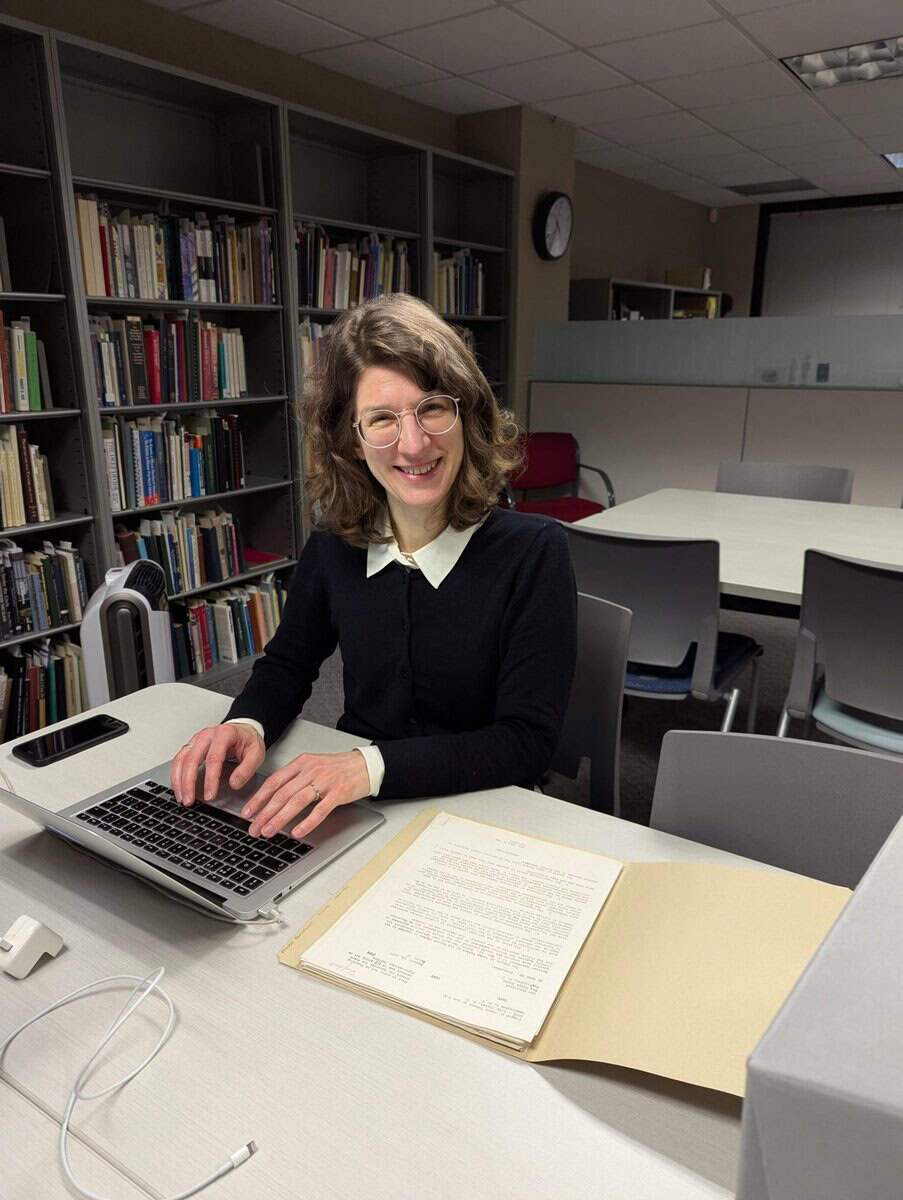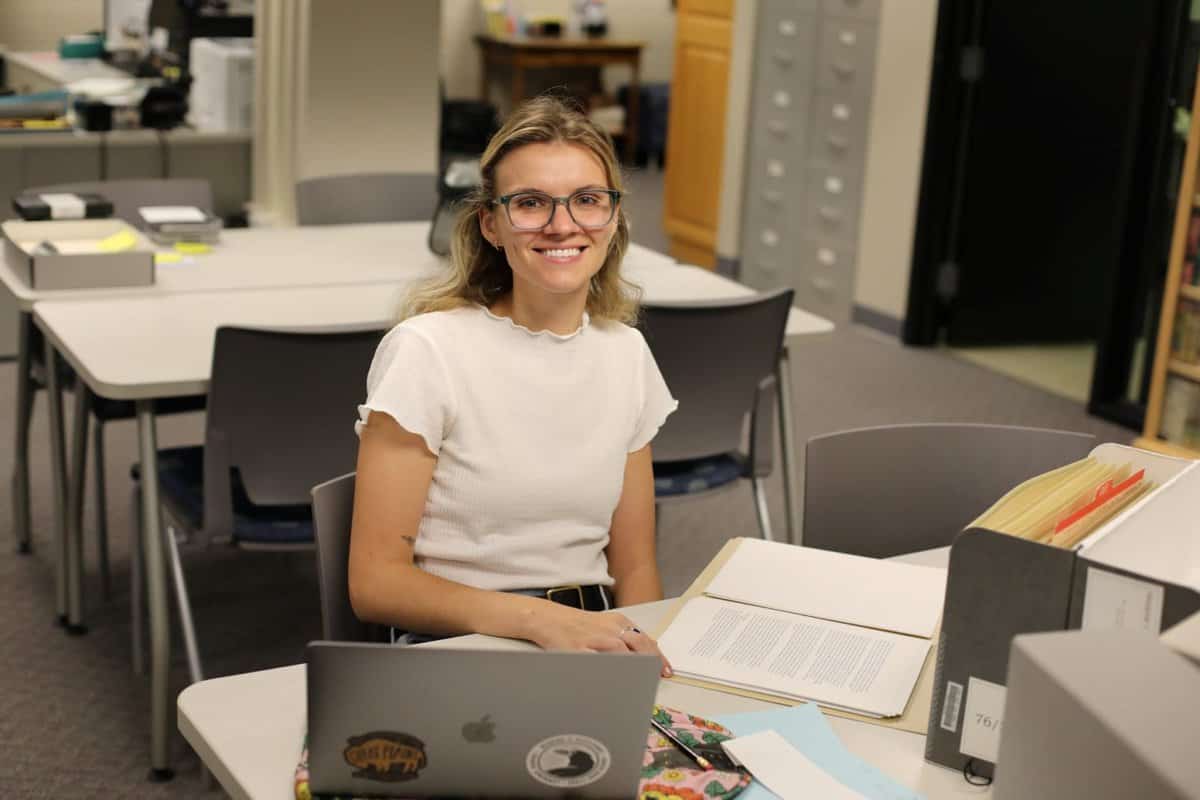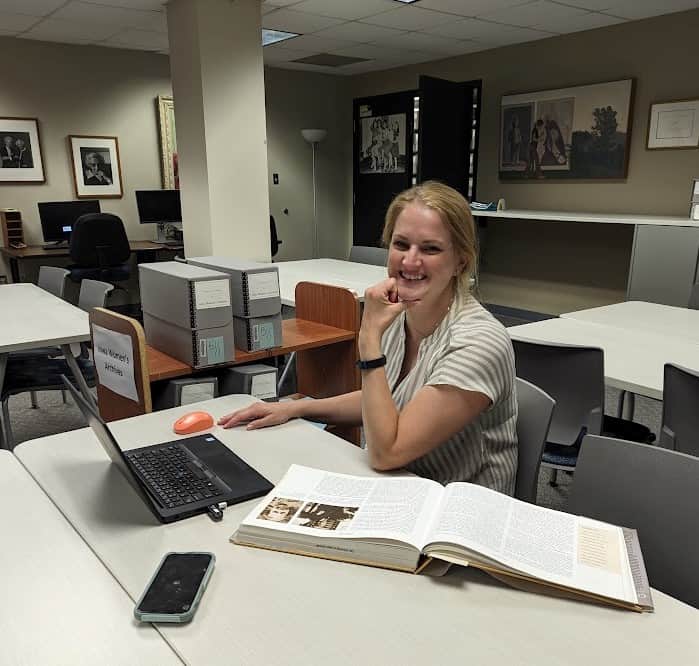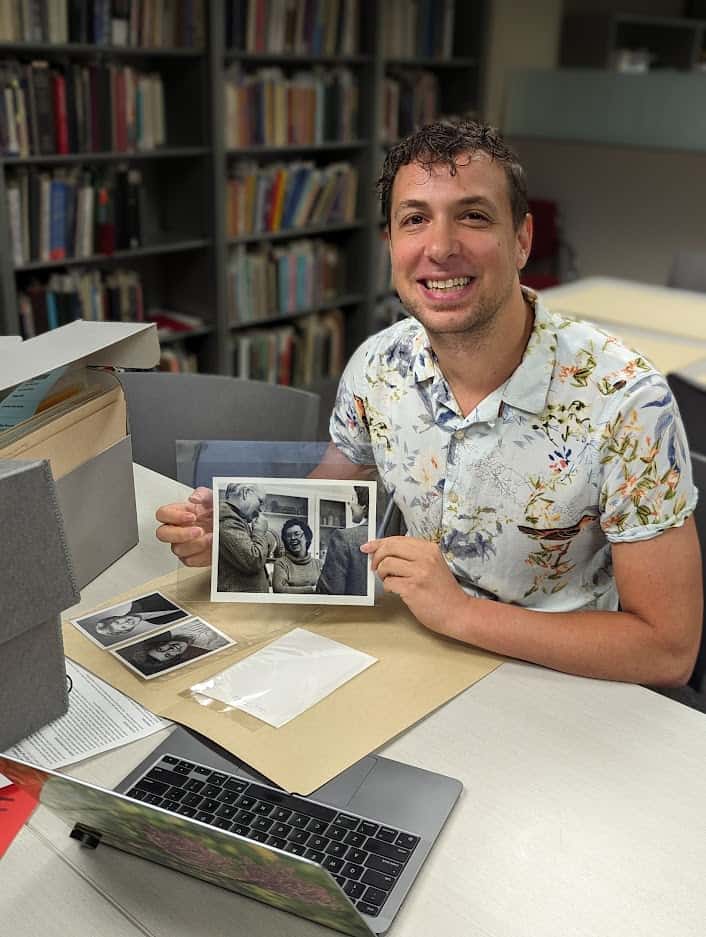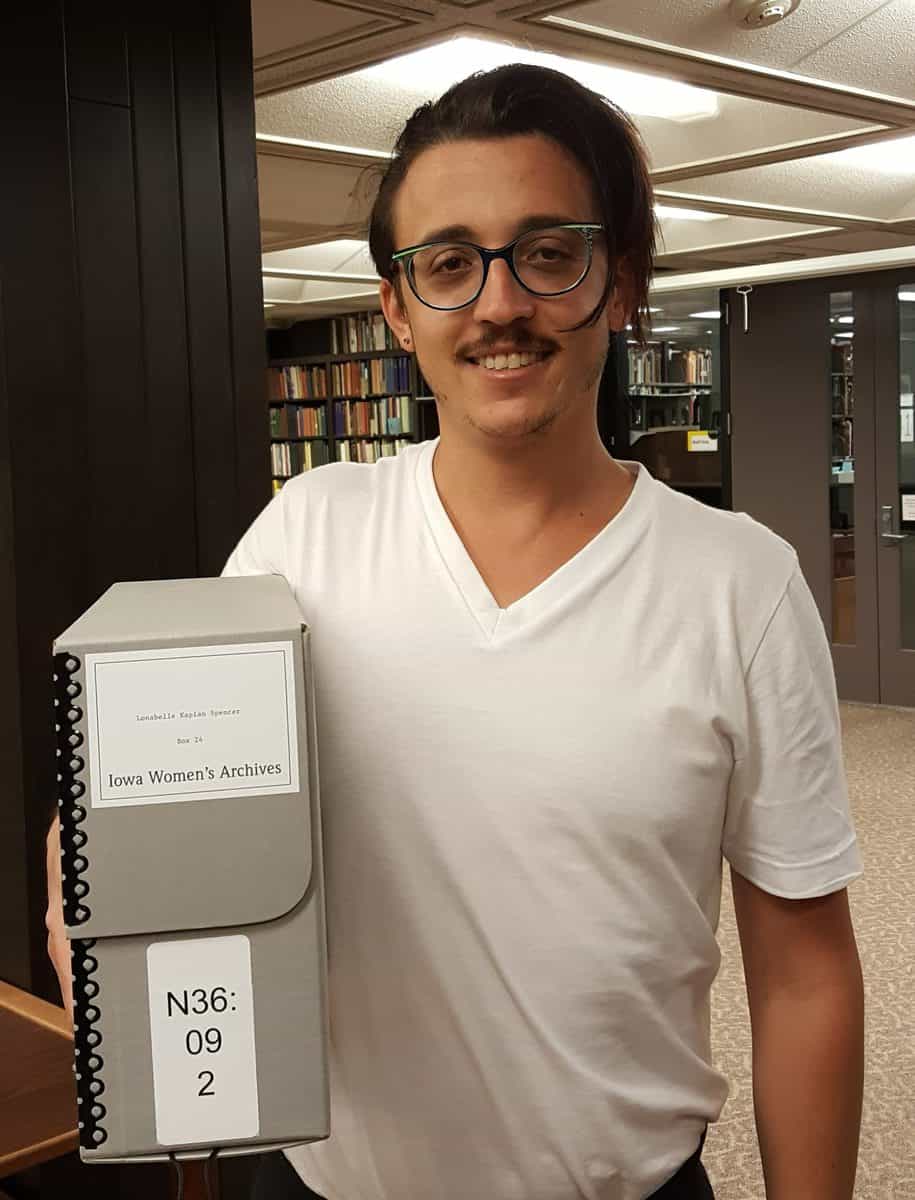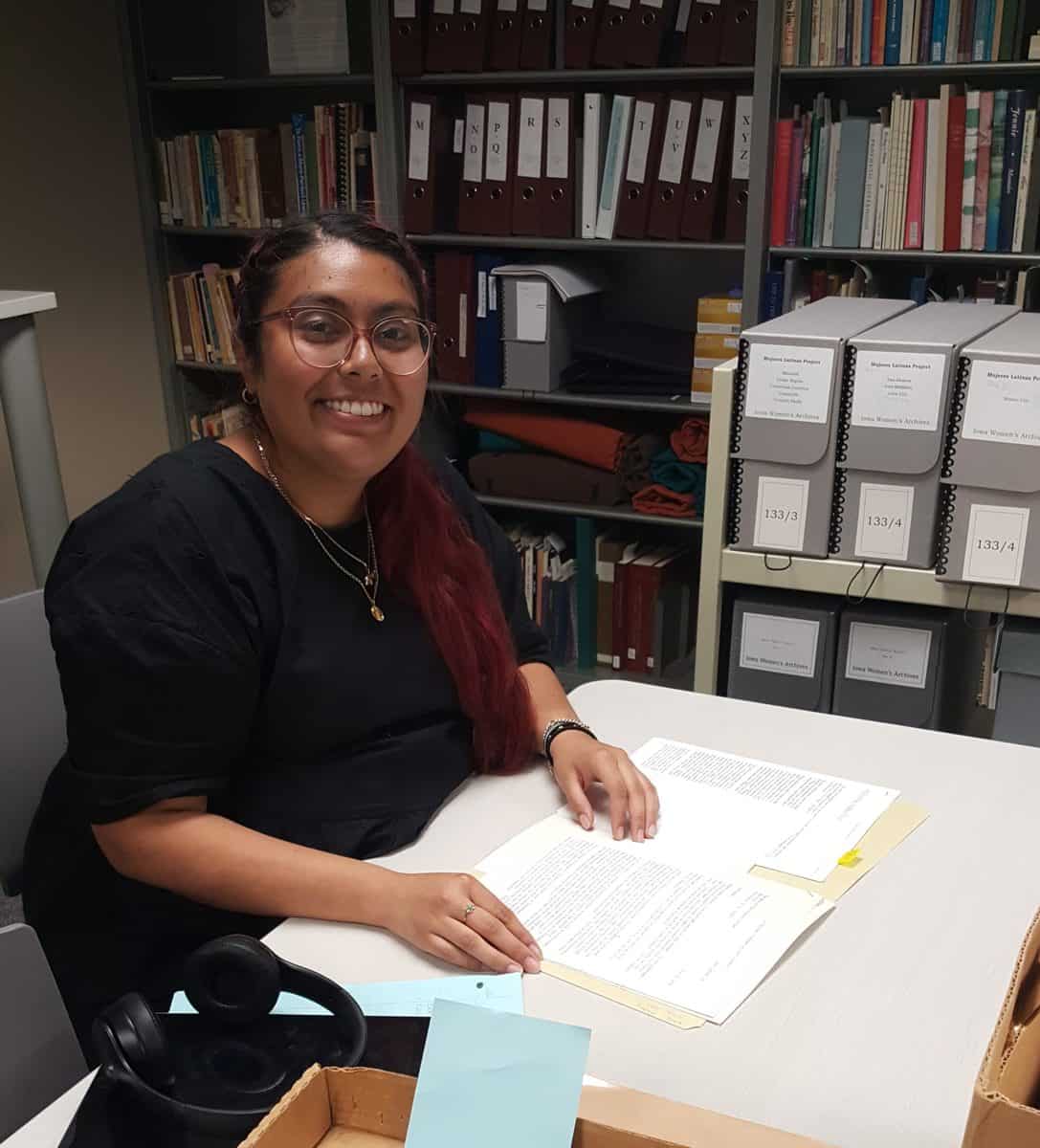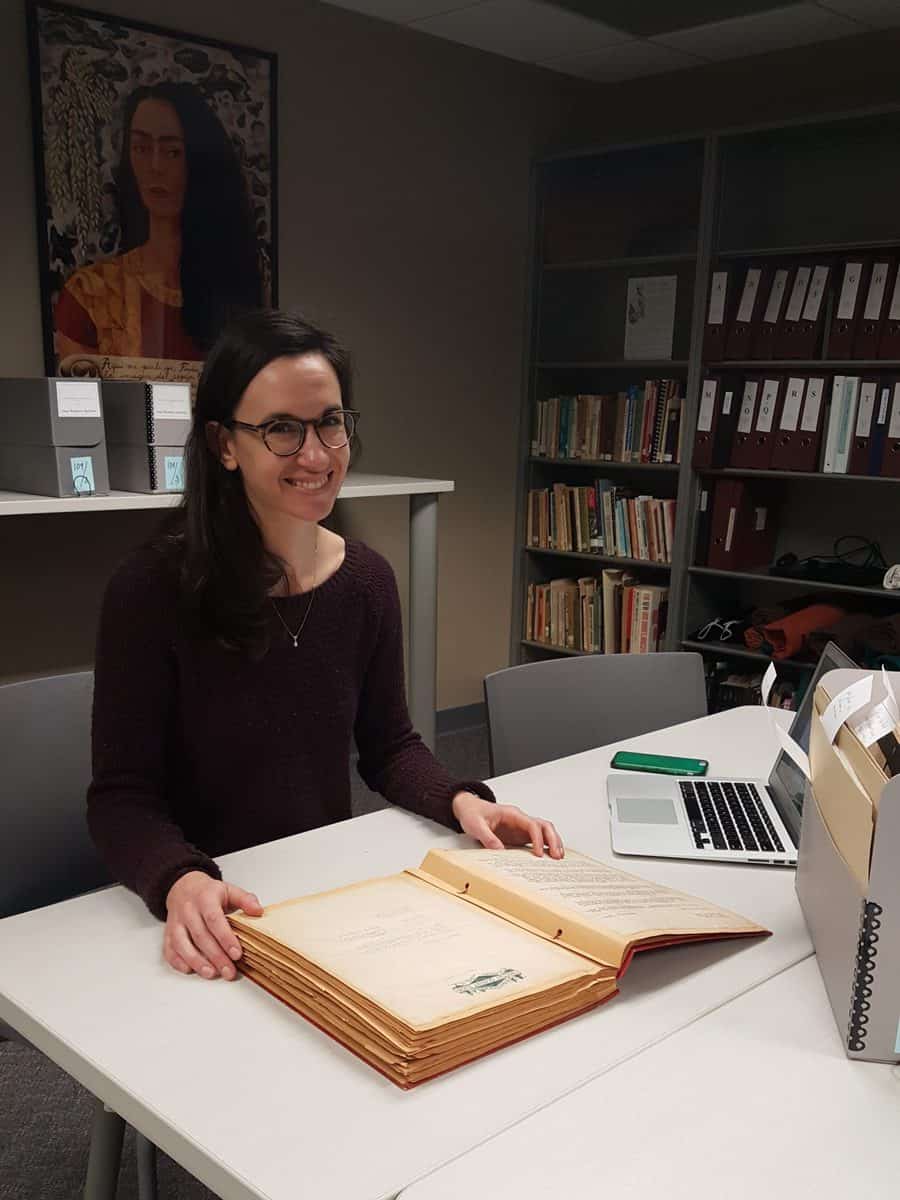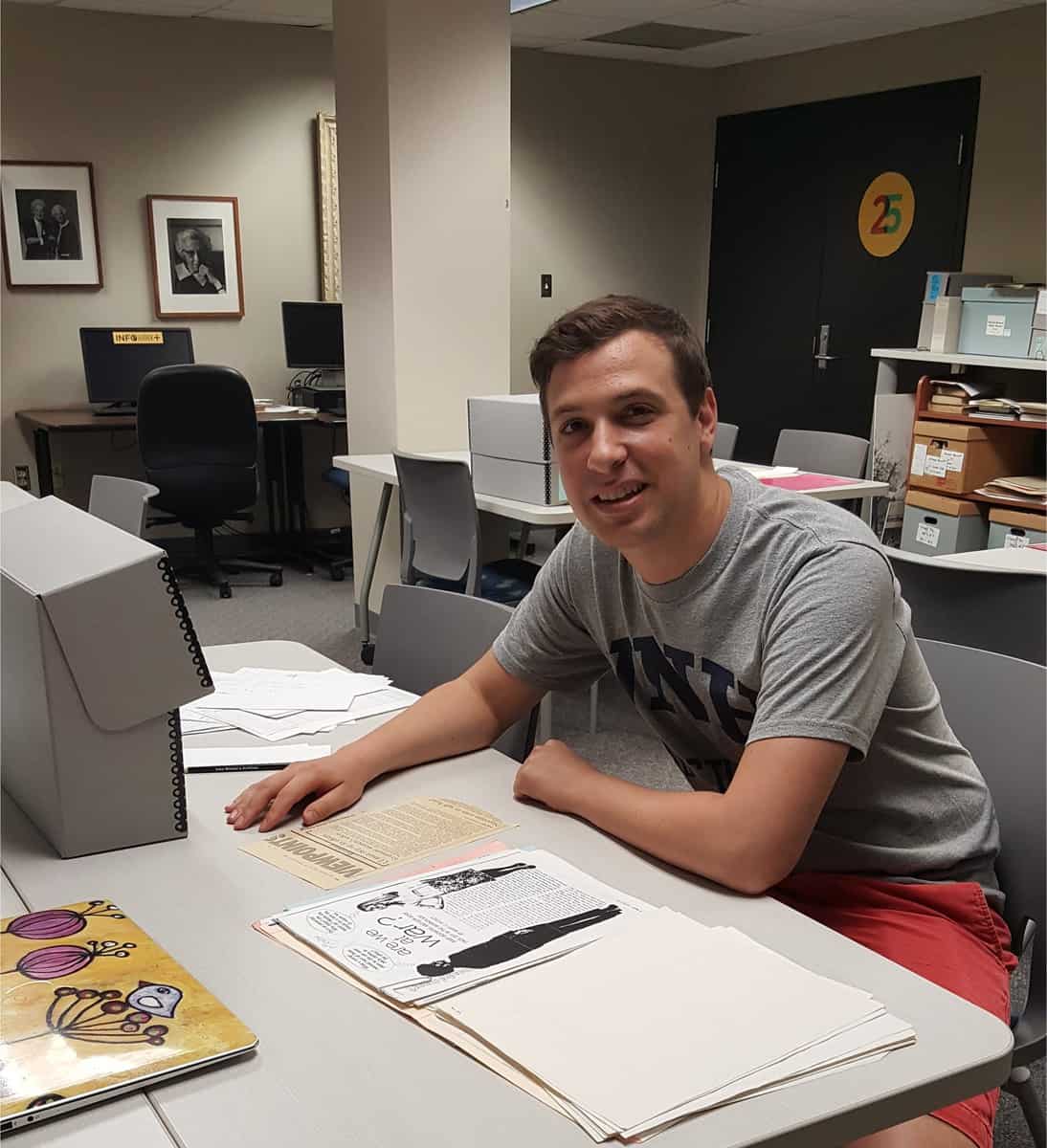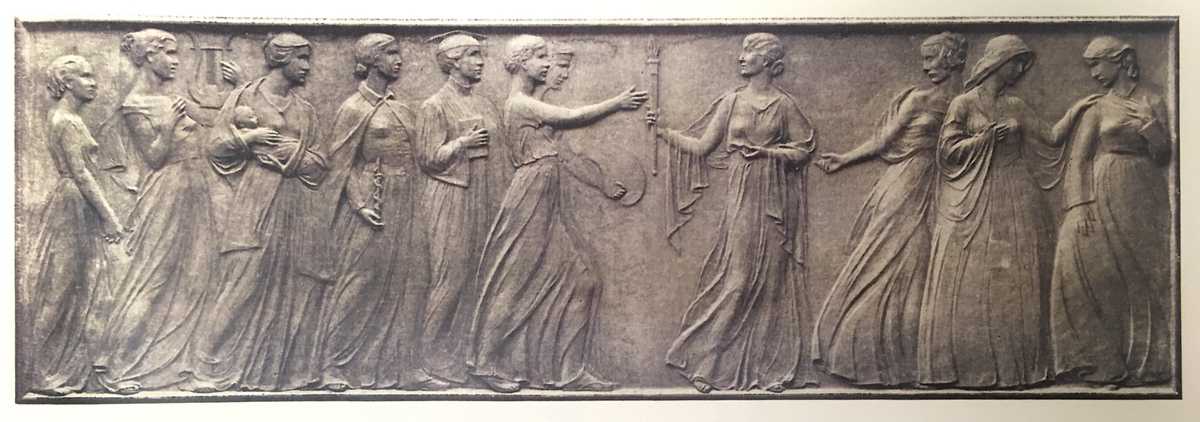UK scholar Katharina Rietzler found more than she’d planned on at UI Libraries. The Linda and Richard Kerber Travel Fund made a second research trip possible.
Category Archives: Scholarship
The 2024 Kerber Grant gave one researcher renewed appreciation for rural women’s advocacy
IWA’s 2024 Kerber Travel Grant recipient found a wealth of resources for her dissertation on rural women’s grass-roots coalition building.
Kerber Grant Recipient’s Work Will Feature Political Activist Edna Griffin
Edna Griffin, known as the Rosa Parks of Iowa, has gained deserved attention over the years for her civil rights activism, especially for her role in the effort to desegregate the lunch counter at Katz Drug Store in Des Moines. Her actions resulted in a successful suit against the store under Iowa’s 1884 Civil RightsContinue reading “Kerber Grant Recipient’s Work Will Feature Political Activist Edna Griffin”
Kerber Grant Recipient Ezra Temko Delves into Gender Parity in Politics at IWA
Every year, the Linda and Richard Kerber Travel Grant allows researchers from across the country to come to Iowa City and use the Iowa Women’s Archives’ collections. Ezra Temko, is the grant’s first second-time winner. He first visited the IWA in 2018 as a PhD candidate in Sociology from the University of New Hampshire, where hisContinue reading “Kerber Grant Recipient Ezra Temko Delves into Gender Parity in Politics at IWA”
IWA’s 2021 Kerber Grant Recipient Finds Personal Stories within Industrial Agriculture
In Box 24 of the Lonabelle Kaplan Spencer papers, Andrew Seber finally found exactly what he was looking for: personal testimonies by rural citizens whose lives were turned upside down by the development of hog confinements near their Iowa homes. Seber’s dissertation, Neither Factory nor Farm: the Other Environmental Movement, will focus on industrial animalContinue reading “IWA’s 2021 Kerber Grant Recipient Finds Personal Stories within Industrial Agriculture”
IWA’s 2020 Kerber Grant Recipient: Yazmin Gomez
After the pandemic postponed her research trip, Yazmin Gomez, the 2020 Linda and Richard Kerber Travel Grant recipient, finally made it to IWA! Linda Kerber, May Brodbeck Professor in the Liberal Arts and Professor of History Emerita, and her husband Richard founded this grant to help researchers, especially graduate students, travel to the Iowa Women’sContinue reading “IWA’s 2020 Kerber Grant Recipient: Yazmin Gomez”
Ella Wagner: 2019 Linda and Richard Kerber Travel Grant Recipient
Ella Wagner, a PhD candidate from Loyola University is this year’s Linda and Richard Kerber travel grant recipient. Linda Kerber and her husband Richard founded this Fund for Research in the Iowa Women’s Archives that awards $1000 annually to a researcher, especially a graduate student, whose work would benefit from travelling to Iowa and usingContinue reading “Ella Wagner: 2019 Linda and Richard Kerber Travel Grant Recipient”
Encountering Soul in the Iowa Women’s Archives: Scholar Taryn D. Jordan and the Aldeen Davis Papers
Taryn D. Jordan was researching Ella Fitzgerald at the Schlesinger Library in the Radcliffe Institute when she first encountered the papers that would bring her to the Iowa Women’s Archives. Jordan is a doctoral candidate in Women’s, Gender & Sexuality Studies at Emory University and an ACLS Mellon Dissertation Completion fellow who has been researchingContinue reading “Encountering Soul in the Iowa Women’s Archives: Scholar Taryn D. Jordan and the Aldeen Davis Papers”
Our 2018 Travel Grant Recipient: Ezra Temko
Our 2018 Linda and Richard Kerber Fund travel grant recipient is Ezra Temko, a Sociology PhD candidate at the University of New Hampshire (UNH). The Linda and Richard Kerber Fund was established to help researchers travel to the Iowa Women’s Archives. Temko has come to Iowa City from the state of Delaware, where his researchContinue reading “Our 2018 Travel Grant Recipient: Ezra Temko”
25 for 25: Iowa Suffrage Memorial Commission
It is in part thanks to the Iowa Suffrage Memorial Commission that the IWA has such a collection of materials on the suffrage movement in Iowa. The commission, incorporated in 1922, was organized “to commemorate the efforts of the Pioneer Suffragists and the long procession of workers who helped secure the final enfranchisement of women.”Continue reading “25 for 25: Iowa Suffrage Memorial Commission”
